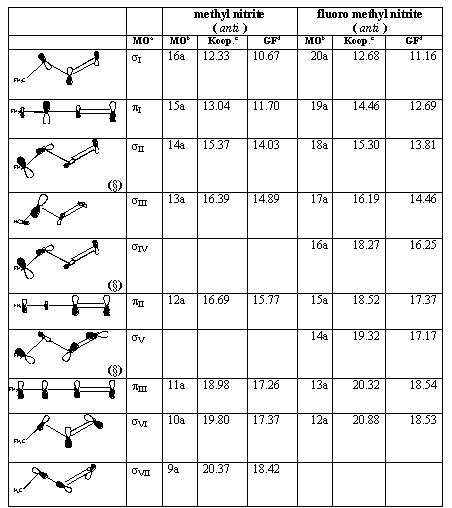
thomachan72
03-31 03:31 PM
Congrats. Don't lose it. Enjoy your freedom.
What about you? your PD is current right? any chance that you will get it soon?
What about you? your PD is current right? any chance that you will get it soon?
wallpaper ionization energies (eV)
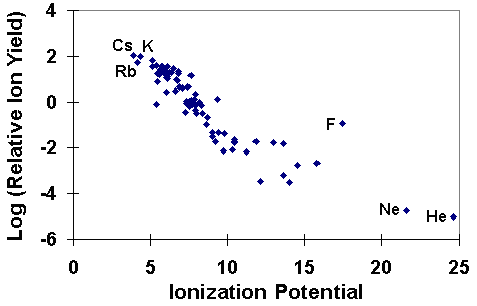
reddy77
04-13 02:36 PM
So did you answer the RFE ? ....
Thanks Guys ..... Nah, I am still waiting for that, will update you once I got it ....
Thanks Guys ..... Nah, I am still waiting for that, will update you once I got it ....

dixie
08-09 11:26 AM
It is true that big businesses are putting a lot of pressure to initiate legal immigration reform, so while there is certainly room for optimism, we cannot sit still and just wait for things to happen. That is what legal immigrants have been doing for generations and we now know the mess that we are in. In contrast, look at the illegal immigrants. They create a lot of sound and fury, and ultimately even though nobody likes illegal immigration, an amnesty(or something close) is almost inevitable every 20 years or so.
IV is the first organization to initiate activism among legal immigrants. We are not that powerful right now, but we have already seen what activism can do. See the dramatic increase in coverage of legal immigration issues in the media. I cannot recall anything being published about our plight before. Those who say IV has done is ineffective should remember that a journey of a thousand miles begins with a single step.IV has taken that important first step.
I don't know.
My friend same something that it makes sense;
Don't expect to see any real improvement throughout the Pres. Bush Administration. Remember politicians do shows. Even the current SKIL bill seems to be way unilateral and that would not be welcome by American voters either. I think until lawmakers truly stop listening to lobbysts and bring a true balanced bill to the table, we will see lots of "shows", but no real result.
It may happen someday, but I don't count on it necessarily in 2007.
IV is the first organization to initiate activism among legal immigrants. We are not that powerful right now, but we have already seen what activism can do. See the dramatic increase in coverage of legal immigration issues in the media. I cannot recall anything being published about our plight before. Those who say IV has done is ineffective should remember that a journey of a thousand miles begins with a single step.IV has taken that important first step.
I don't know.
My friend same something that it makes sense;
Don't expect to see any real improvement throughout the Pres. Bush Administration. Remember politicians do shows. Even the current SKIL bill seems to be way unilateral and that would not be welcome by American voters either. I think until lawmakers truly stop listening to lobbysts and bring a true balanced bill to the table, we will see lots of "shows", but no real result.
It may happen someday, but I don't count on it necessarily in 2007.
2011 ionization energy trend. The correlations of ionization

Blog Feeds
02-25 07:20 PM
AILA Leadership Has Just Posted the Following:
https://blogger.googleusercontent.com/img/b/R29vZ2xl/AVvXsEiAyZ7RttGRfKJ7ajDodvsSIVLhq30s3rNPrXQjjzpn4ZE18fzRDCzWca0834rYQiVvJ7RBHZ_pb90-tgZ_ueNcHrM2Erju63fW7b9LCjs0AZ5LmwntkD9mKUpWDyFuHPDnp9kVnxPX-9Y/s320/2010-02-23+Magnifying+Glass.jpg (https://blogger.googleusercontent.com/img/b/R29vZ2xl/AVvXsEiAyZ7RttGRfKJ7ajDodvsSIVLhq30s3rNPrXQjjzpn4ZE18fzRDCzWca0834rYQiVvJ7RBHZ_pb90-tgZ_ueNcHrM2Erju63fW7b9LCjs0AZ5LmwntkD9mKUpWDyFuHPDnp9kVnxPX-9Y/s1600-h/2010-02-23+Magnifying+Glass.jpg)
By Eleanor Pelta, AILA First Vice President
The latest salvo in the war against H-1B workers and their employers (and this time, they�ve thrown L-1�s in just for fun,) is the Economic Policy Institute�s briefing paper by Ron Hira, released last week, which concludes that the practice of using H-1B and L-1 workers and then sending them back to their home countries is bad for the economy. While Hira�s findings are certainly headline-grabbing, the road that Hira takes to get there is filled with twists, turns and manipulations and simply lacks real data.
Hira starts with the premise that some employers use H-1B�s and L visas as a bridge to permanent residence, and some employers use those categories for temporary worker mobility. (His particular political bent is belied by his constant usage of the term �guest-worker status��a term that brings with it the politically charged connotations of the European guest worker programs for unskilled workers�for the practice of bringing H-1B�s and L�s in to the U.S. on a temporary basis.) After examining his �data,� he divides the world of employers into two broad categories:
� Bad guys (generally foreign employers, no surprise, or U.S. employers with off-shore companies in India) that bring in H-1B and L workers for temporary periods, exploit them, underpay them and send them home after they get training from the American workers whose jobs they will outsource when they return home
� Good guys (U.S. corporations �Hira uses the more genteel label, �firms with traditional business models�) that bring H-1B and L workers to the U.S., pay them adequate wages, and sponsor them for permanent residence, thereby effecting a knowledge transfer to American colleagues that is good for the economy
Hira�s tool, a statistic he calls �immigration yield,� is simply a comparison of H-1B and L usage and the number of PERM applications filed by the highest users of those visas. He essentially concludes that because the highest users of H-1B�s and L�s are Indian consulting companies, and these companies have only a minimal number of PERM�s certified, they are using H�s and L�s as cheap temporary labor. He is unable to explain away the high number PERM filings of one of the IT consulting companies, and so he addresses this anomaly by saying �part of the explanation might be that it is headquartered in the United States.�
There are too many things wrong with this analysis to list in this blog, but here are a just a few ways in which Hira�s study is problematic:
Hira�s clear implication is that companies that don�t sponsor H-1B�s and L�s for PERM are using these workers instead of more expensive American labor. He ignores that fact the H-1B program has rules in place requiring payment of the prevailing wage to these workers. But even worse, he has not presented any data whatsoever on the average wages paid to these workers. He also doesn�t address the expense of obtaining such visas. He simply concludes that because they are here temporarily, they are underpaid.
Hira makes the argument that companies who use H-1B and L workers as temporary workers generally use their U.S. operations as a training ground for these workers and then send then back to their home countries to do the job that was once located here. Again, this assertion is not supported by any real statistical data about, or serious review of, the U.S. activities of such workers, but rather by anecdotal evidence and quotes from news stories taken out of context.
With respect to the fact that the L-1B visa requires specialized knowledge and so would normally preclude entry to the U.S. for the purpose of gaining training, Hira cites and outdated OIG report that alleges that adjudicators will approve any L-1B petition, because the standards are so broad. Those of use in the field struggling with the 10 page RFE�s typically issued automatically on any specialized knowledge petition would certainly beg to differ with that point.
Hira clearly implies that American jobs are lost because of H-1B and L �guest workers,� but has no direct statistical evidence of such job loss.
The fact is that usage of H-1B and L visas varies with the needs of the employer. Some employers use these programs to rotate experienced, professional workers into the United States and then send the workers abroad to continue their careers. Some employers bring H-1B�s and L�s into the U.S. to rely on their skills on a permanent basis. Judging from the fraud statistics as well as DOL enforcement actions, the majority of employers who use H-1B workers pay these workers adequate wages and comply with all of the DOL rules regarding use of these workers, whether the employers bring them in for temporary purposes or not. By the same token, the minority of employers who seek to abuse H and L workers may well do so, whether they intend to sponsor them for permanent residence or not. Indeed, arguably, the potential for long-term abuse is much worse in the situation in which a real �bad guy� employer is sponsoring an employee for a green card, because of the inordinate length of time it takes for many H-1B and L workers to obtain permanent residency due to backlogs.
Hira does make that last point, and it is just about the only one we agree on. Congress needs to create a streamlined way for employers to access and retain in the U.S. foreign expertise and talent, without at 10-15 year wait for permanent residence. But our economy still needs the ability for business to nimbly move talent to the U.S. on a temporary basis when needed, or to rotate key personnel internationally. In a world where global mobility means increased competitiveness, Hira�s �statistics� simply don�t support elimination of these crucial capability.https://blogger.googleusercontent.com/tracker/186823568153827945-6000198492670312275?l=ailaleadership.blogspot.com
More... (http://ailaleadership.blogspot.com/2010/02/epis-latest-study-of-h-1b-and-l-usage.html)
https://blogger.googleusercontent.com/img/b/R29vZ2xl/AVvXsEiAyZ7RttGRfKJ7ajDodvsSIVLhq30s3rNPrXQjjzpn4ZE18fzRDCzWca0834rYQiVvJ7RBHZ_pb90-tgZ_ueNcHrM2Erju63fW7b9LCjs0AZ5LmwntkD9mKUpWDyFuHPDnp9kVnxPX-9Y/s320/2010-02-23+Magnifying+Glass.jpg (https://blogger.googleusercontent.com/img/b/R29vZ2xl/AVvXsEiAyZ7RttGRfKJ7ajDodvsSIVLhq30s3rNPrXQjjzpn4ZE18fzRDCzWca0834rYQiVvJ7RBHZ_pb90-tgZ_ueNcHrM2Erju63fW7b9LCjs0AZ5LmwntkD9mKUpWDyFuHPDnp9kVnxPX-9Y/s1600-h/2010-02-23+Magnifying+Glass.jpg)
By Eleanor Pelta, AILA First Vice President
The latest salvo in the war against H-1B workers and their employers (and this time, they�ve thrown L-1�s in just for fun,) is the Economic Policy Institute�s briefing paper by Ron Hira, released last week, which concludes that the practice of using H-1B and L-1 workers and then sending them back to their home countries is bad for the economy. While Hira�s findings are certainly headline-grabbing, the road that Hira takes to get there is filled with twists, turns and manipulations and simply lacks real data.
Hira starts with the premise that some employers use H-1B�s and L visas as a bridge to permanent residence, and some employers use those categories for temporary worker mobility. (His particular political bent is belied by his constant usage of the term �guest-worker status��a term that brings with it the politically charged connotations of the European guest worker programs for unskilled workers�for the practice of bringing H-1B�s and L�s in to the U.S. on a temporary basis.) After examining his �data,� he divides the world of employers into two broad categories:
� Bad guys (generally foreign employers, no surprise, or U.S. employers with off-shore companies in India) that bring in H-1B and L workers for temporary periods, exploit them, underpay them and send them home after they get training from the American workers whose jobs they will outsource when they return home
� Good guys (U.S. corporations �Hira uses the more genteel label, �firms with traditional business models�) that bring H-1B and L workers to the U.S., pay them adequate wages, and sponsor them for permanent residence, thereby effecting a knowledge transfer to American colleagues that is good for the economy
Hira�s tool, a statistic he calls �immigration yield,� is simply a comparison of H-1B and L usage and the number of PERM applications filed by the highest users of those visas. He essentially concludes that because the highest users of H-1B�s and L�s are Indian consulting companies, and these companies have only a minimal number of PERM�s certified, they are using H�s and L�s as cheap temporary labor. He is unable to explain away the high number PERM filings of one of the IT consulting companies, and so he addresses this anomaly by saying �part of the explanation might be that it is headquartered in the United States.�
There are too many things wrong with this analysis to list in this blog, but here are a just a few ways in which Hira�s study is problematic:
Hira�s clear implication is that companies that don�t sponsor H-1B�s and L�s for PERM are using these workers instead of more expensive American labor. He ignores that fact the H-1B program has rules in place requiring payment of the prevailing wage to these workers. But even worse, he has not presented any data whatsoever on the average wages paid to these workers. He also doesn�t address the expense of obtaining such visas. He simply concludes that because they are here temporarily, they are underpaid.
Hira makes the argument that companies who use H-1B and L workers as temporary workers generally use their U.S. operations as a training ground for these workers and then send then back to their home countries to do the job that was once located here. Again, this assertion is not supported by any real statistical data about, or serious review of, the U.S. activities of such workers, but rather by anecdotal evidence and quotes from news stories taken out of context.
With respect to the fact that the L-1B visa requires specialized knowledge and so would normally preclude entry to the U.S. for the purpose of gaining training, Hira cites and outdated OIG report that alleges that adjudicators will approve any L-1B petition, because the standards are so broad. Those of use in the field struggling with the 10 page RFE�s typically issued automatically on any specialized knowledge petition would certainly beg to differ with that point.
Hira clearly implies that American jobs are lost because of H-1B and L �guest workers,� but has no direct statistical evidence of such job loss.
The fact is that usage of H-1B and L visas varies with the needs of the employer. Some employers use these programs to rotate experienced, professional workers into the United States and then send the workers abroad to continue their careers. Some employers bring H-1B�s and L�s into the U.S. to rely on their skills on a permanent basis. Judging from the fraud statistics as well as DOL enforcement actions, the majority of employers who use H-1B workers pay these workers adequate wages and comply with all of the DOL rules regarding use of these workers, whether the employers bring them in for temporary purposes or not. By the same token, the minority of employers who seek to abuse H and L workers may well do so, whether they intend to sponsor them for permanent residence or not. Indeed, arguably, the potential for long-term abuse is much worse in the situation in which a real �bad guy� employer is sponsoring an employee for a green card, because of the inordinate length of time it takes for many H-1B and L workers to obtain permanent residency due to backlogs.
Hira does make that last point, and it is just about the only one we agree on. Congress needs to create a streamlined way for employers to access and retain in the U.S. foreign expertise and talent, without at 10-15 year wait for permanent residence. But our economy still needs the ability for business to nimbly move talent to the U.S. on a temporary basis when needed, or to rotate key personnel internationally. In a world where global mobility means increased competitiveness, Hira�s �statistics� simply don�t support elimination of these crucial capability.https://blogger.googleusercontent.com/tracker/186823568153827945-6000198492670312275?l=ailaleadership.blogspot.com
More... (http://ailaleadership.blogspot.com/2010/02/epis-latest-study-of-h-1b-and-l-usage.html)
more...
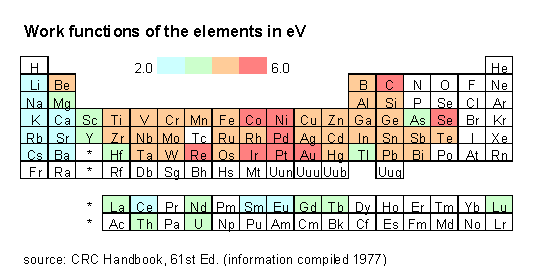
TeddyKoochu
04-01 08:44 AM
Thanks all for your help and great inputs. IV has helped me a lot.
I wish you all the best ...
TKs, GG
Congratulations & Best Wishes. Enjoy the moment !
I wish you all the best ...
TKs, GG
Congratulations & Best Wishes. Enjoy the moment !

June05
08-06 11:33 AM
Congratulations!
Quick question: Do you know what your online receive date was before the application got approved? This is the date the USCIS website states that they received your application on. Thx
Quick question: Do you know what your online receive date was before the application got approved? This is the date the USCIS website states that they received your application on. Thx
more...
gcformeornot
08-21 10:59 AM
Is this anything to do with PD?
please poll here to add your vote...
http://immigrationvoice.org/forum/showthread.php?t=12603
sorry if did already.
please poll here to add your vote...
http://immigrationvoice.org/forum/showthread.php?t=12603
sorry if did already.
2010 of the second ionization

vinoddas
07-29 08:58 PM
Any suggestions would be extremely helpful
more...
vrbest
05-07 04:09 PM
Soft LUD means the date changed but no message content change..
Hard LUD means both date and message changed..
THanks for the information. Now its little encouraging. could you clear one of my other questions.. whats the difference between LUD and soft LUD. I logged in the USCIS website
and i see the date changed at the LUD to 04/28/2009. What is that is that a soft lud or LUD
Thanks
Hard LUD means both date and message changed..
THanks for the information. Now its little encouraging. could you clear one of my other questions.. whats the difference between LUD and soft LUD. I logged in the USCIS website
and i see the date changed at the LUD to 04/28/2009. What is that is that a soft lud or LUD
Thanks
hair ionization energy trend. between ionization energy
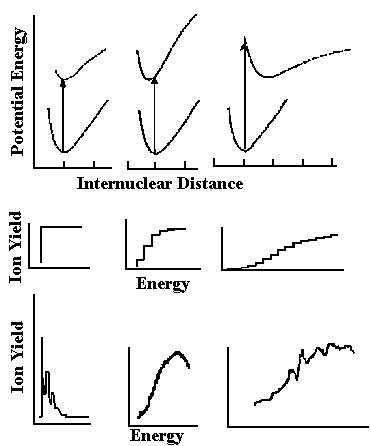
nat23
03-14 02:19 PM
hello,
My mother has 10 yr multiple entry visa. She is planning to travel from Bangalore India to USA through Lufthansa Airways. She has a stop over at Frankfurt airport for about 3 hrs. Does she need to get a transit visa for that. Any recent experience or suggestion? Thanks.
When is your mother coming over? Whats her port of entry? My wife will be coming from Bangalore on May 20th through Lufthansa.
To answer your question: You DONT need a transit visa if you have a valid US visa.
My mother has 10 yr multiple entry visa. She is planning to travel from Bangalore India to USA through Lufthansa Airways. She has a stop over at Frankfurt airport for about 3 hrs. Does she need to get a transit visa for that. Any recent experience or suggestion? Thanks.
When is your mother coming over? Whats her port of entry? My wife will be coming from Bangalore on May 20th through Lufthansa.
To answer your question: You DONT need a transit visa if you have a valid US visa.
more...

DUNBAR
09-22 12:48 PM
My labor was filed in 2008, got the Audit in filed month 2009,responded and got cleared in filed month 2010.
hot first ionization energy.
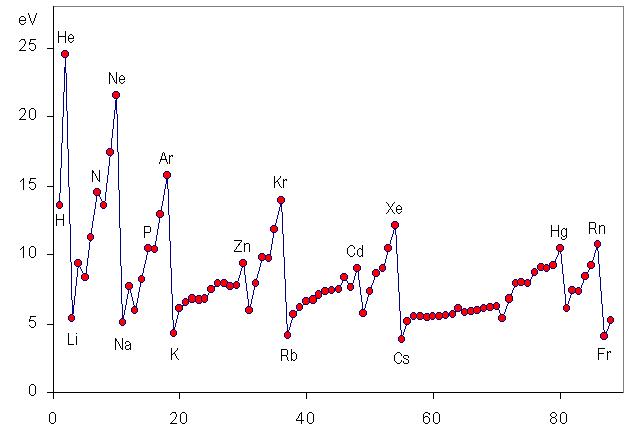
kondur_007
08-25 10:58 AM
As long as your application reached the mail room on or before Jul 21, 2008 then you are good to go and don't worry about the date on 797 receipt notice and remember to save the delivery proof. If it has reached after Jul 21, 2008 then your case will be denied because your labor is no longer valid from Jul 22, 2008 - you will have to start everything from scratch
I agree with wandmaker above.
Did your application reach on or before the expiry date on the PERM LC? If yes, you are fine. Just wait for 140 to be approved. If you qualify for premium processing (and qualification criteria are very narrow: if you are currently on H1b and need to extend it and no other way to extend it) then only you can do premium processing.
If your application reached AFTER the expiray date on PERM LC, it is very likely to be denied. Again, if you qualify for premium processing, go ahead and do it to know it sooner. Also start working on new PERM ASAP.
You can not port PD until and unless 140 is approved. If it gets denied you loose the PD too.
Trust me, this is a scenario where you really want the help from a good attorney.
Good Luck.
I agree with wandmaker above.
Did your application reach on or before the expiry date on the PERM LC? If yes, you are fine. Just wait for 140 to be approved. If you qualify for premium processing (and qualification criteria are very narrow: if you are currently on H1b and need to extend it and no other way to extend it) then only you can do premium processing.
If your application reached AFTER the expiray date on PERM LC, it is very likely to be denied. Again, if you qualify for premium processing, go ahead and do it to know it sooner. Also start working on new PERM ASAP.
You can not port PD until and unless 140 is approved. If it gets denied you loose the PD too.
Trust me, this is a scenario where you really want the help from a good attorney.
Good Luck.
more...
house the ionization energy of

eilsoe
10-03 01:11 PM
Man you're weird too....
SPAM SPAM SPAM
:::::runs away too::::: (HA!)
SPAM SPAM SPAM
:::::runs away too::::: (HA!)
tattoo ionization energy trend.

Amma
10-09 05:38 PM
I am in.
more...
pictures in ionization energy

WeShallOvercome
08-05 11:05 AM
Hello,
How can I inform the USCIS (I-485 pending) that my lawyer is not representing me any more? Do I need to fill up any form (like G28)?
I do not want USCIS to send ant document to my ex-lawyer anymore.
Thanks so much
EB2-NIW
PD march 2003
RD - august 2003
I-485 pending
Yes, you need to send another G-28 with a cover letter and a copy of your receipt notice.
How can I inform the USCIS (I-485 pending) that my lawyer is not representing me any more? Do I need to fill up any form (like G28)?
I do not want USCIS to send ant document to my ex-lawyer anymore.
Thanks so much
EB2-NIW
PD march 2003
RD - august 2003
I-485 pending
Yes, you need to send another G-28 with a cover letter and a copy of your receipt notice.
dresses first ionization energy?

davidk
02-16 08:39 AM
Hi Everyone,
I will be laid off from an american company by the end of Feb 2009. I spoke to my previous desi employee as my H1b with his company is still valid and he din't revoked it until now
But he agrees to let me join his company but at the same time he worried about few things
Q1) I was with him for 6 months of 2008 and moved to an American Company so the total pay in the W2 for year 2008 is less than LCA amount.
Would that be a problem as i din't work with him for an entire year in which case it is bound to be less than LCA amount..
Mind you i'm looking at the Yearly wage if you look at month wise it is much higher than mentioned in LCA.
Would that be of any problem to both me and employeer.
Q2) He also said that when somebody re hires any one , the employeer is liable to pay back wages for the period of time he was out.
It sounds illogical atleast to me because he didn't terminate me from the job it was me who quit the job and transferred my H1b on a good note , but there is no official document saying i quit the job or he terminated me ....
I would appreciate if some could throw some light on this ....
My future is relied on these issues
Thanks
David
I will be laid off from an american company by the end of Feb 2009. I spoke to my previous desi employee as my H1b with his company is still valid and he din't revoked it until now
But he agrees to let me join his company but at the same time he worried about few things
Q1) I was with him for 6 months of 2008 and moved to an American Company so the total pay in the W2 for year 2008 is less than LCA amount.
Would that be a problem as i din't work with him for an entire year in which case it is bound to be less than LCA amount..
Mind you i'm looking at the Yearly wage if you look at month wise it is much higher than mentioned in LCA.
Would that be of any problem to both me and employeer.
Q2) He also said that when somebody re hires any one , the employeer is liable to pay back wages for the period of time he was out.
It sounds illogical atleast to me because he didn't terminate me from the job it was me who quit the job and transferred my H1b on a good note , but there is no official document saying i quit the job or he terminated me ....
I would appreciate if some could throw some light on this ....
My future is relied on these issues
Thanks
David
more...
makeup Ionization Energy

Templarian
04-23 04:42 PM
^I didn't even know if it was relevant when i remembered the "SDL", i just remember my bro talking about it once. But that was a very long time ago.
Maybe as your learning you could write up some very simple step by step tutorials for beginning the use of SDL.
Maybe as your learning you could write up some very simple step by step tutorials for beginning the use of SDL.
girlfriend ionization energy trend. low ionization energy. low ionization energy.

skark
08-22 11:04 AM
All the people that got the EAD approval have their pending I485 in the same service center where they applied for EAD renewal...does this have anything to do with their fast approvals?
This is so depressing!
:(
I applied for EAD renewal at TSC on June 24 with a pending EB3 I485 pending at NSC. I still have not got an approval for EAD renewal!
Is anyone else in the same boat got their EAD approved?
Did I send my application to the wrong service center, I live in North Carolina?
I know several other people that got their EAD renewal application approved at TSC and these people applied about a month later than me!!!
Please advise :confused:
This is so depressing!
:(
I applied for EAD renewal at TSC on June 24 with a pending EB3 I485 pending at NSC. I still have not got an approval for EAD renewal!
Is anyone else in the same boat got their EAD approved?
Did I send my application to the wrong service center, I live in North Carolina?
I know several other people that got their EAD renewal application approved at TSC and these people applied about a month later than me!!!
Please advise :confused:
hairstyles are shown the ionization

martinvisalaw
06-15 11:46 AM
You should have no problem filing a 2nd 485 even though you already have one pending. This happens often, especially when a foreign national marries a US citizen while an employment-based 485 is pending. I've prepared this type of case many times. the faster 485 will be approved (hopefully), so the slower one will be denied because you already have permanent residence at that point.
shree772000
07-20 08:12 AM
In the longer run I think many of us will go back if not close to 90%. That is the charm India holds in our hearts and minds.
Its just not jobs or lack thereof, its not about comfortable life or lack thereof, you will be pulled back at your heart.
And with all the brains going back India can no longer be poor and will overflow with talent so there will be more companies moving into India.
I plan to go back regardless of GC.
Its just not jobs or lack thereof, its not about comfortable life or lack thereof, you will be pulled back at your heart.
And with all the brains going back India can no longer be poor and will overflow with talent so there will be more companies moving into India.
I plan to go back regardless of GC.
qualified_trash
08-26 03:21 PM
The true value of an MBA lies in the contacts you make when you go to school. An online MBA IMHO is of no real use in terms of your career.
No comments:
Post a Comment